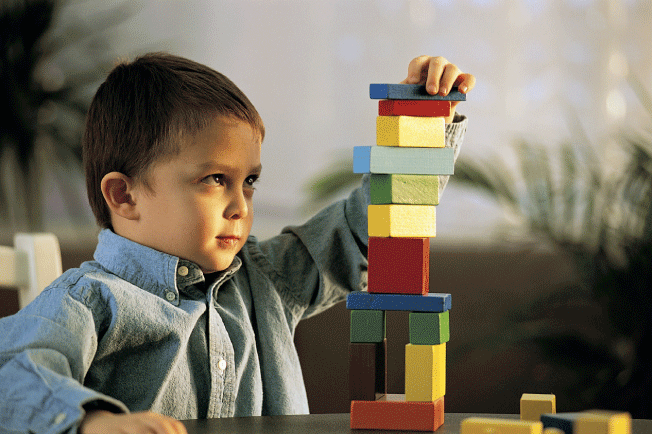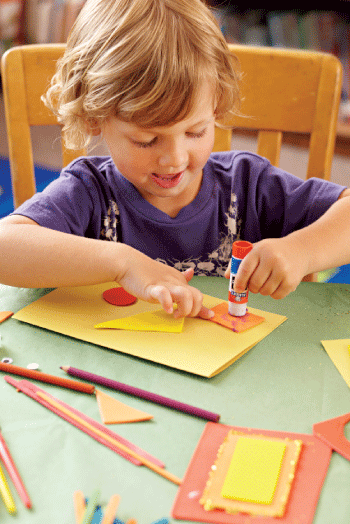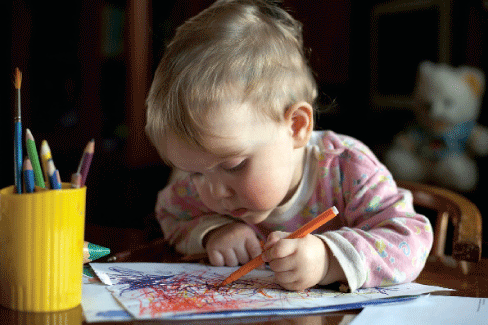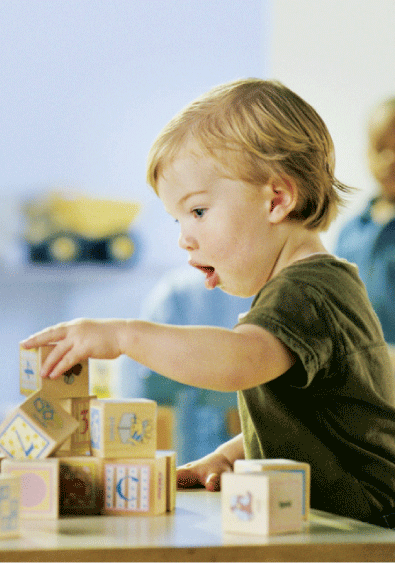
Keep the
Momentum Going
 |
Stimulating your child's curiosity is critical to helping her succeed in the classroom.
Good news: It's not only easy but also fun.
By Leslie Garisto Pfaff
When my daughter, Lily, was 4, she watched in fascination as I pulled back the mulch in our vegetable garden to reveal a cache of fat red worms. She soon found out that the unraked leaves on our patio were home to dozens more, a revelation that delighted us both. I didn't realize it at the time, but that discovery was one of many small moments that helped to fuel Lily's desire to learn—one that followed her to school and will, I hope, remain with her forever.
"Instilling a passion for learning is one of the greatest gifts you can give your kids," says Linda Acredolo, Ph.D., a Parents advisor and coauthor of Baby Minds: Brain-Building Games Your Baby Will Love. That's not to say you should overlook skills such as reading and arithmetic. But keep this in mind: "Kids who enjoy learning tend to explore things more deeply, work harder, and be more successful in school and in life," says Kathy Seal, coauthor of Motivated Minds: Raising Children to Love Learning. These strategies will keep the learning process fresh throughout the early years.
Leave time for independent play
If you've ever watched a toddler endlessly fill, empty, and refill a bucket with sand, you know that all kids are scientists by nature. But this process of experimentation can't happen unless you let your child check out the world on his own terms. "Give him time and room to do things on his own," says Margery B. Franklin, Ph.D., professor emerita of psychology at Sarah Lawrence College, in Bronxville, New York. Resist the urge to jump in and help him at the first sign of frustration; children need to learn how to solve things themselves. "The answers, in learning and in life, don't always come right away," says
Kyle Pruett, Ph.D., a Parents advisor and coauthor of Partnership Parenting. "Most kids need your help to develop perseverance."
Encourage observation
Taking a closer look at everyday objects will make them seem more intriguing to your child. Point out details she might not otherwise notice, such as the whorls of a fingerprint or the patterns on a lace curtain. On walks around town, Marla Barr, of New York City, used to play "Tell me what you see" with her then 2-year-old daughter, Julia. "I showed her the American flag and asked her to point out all the flags she could find on our stroll," says Barr. In turn, Julia asked her mom to identify any new thing she observed (such as a mailbox or a garbage truck) and then tried to find other examples of it.
Teach her that mistakes are a part of life
School is a key time for learning, but it can also be one of anxiety. Many kids worry about being embarrassed in front of their peers if they don't know the answer or do something the wrong way. Try to counter this hesitancy by acknowledging your own goofs: "Whoops. I drove right by Nicole's house. I guess we'll have to go around the block again." This sends the message that no one is perfect. When your child makes a mistake, you should also turn it into a positive. You might say, for instance, "You're really good at making those E's. Now just try to draw them facing the other way." Also, always answer your child's questions and never belittle them ("C'mon, you know the answer to that"), even if a query seems silly to you.
Help him develop a cool hobby
As kids learn more about the world, they often discover a single subject that's especially intriguing to them. Artwork may absorb one child, while another might set his sights on outer space. "If a child has a special interest in something, learning becomes exciting," says Sally Reis, Ph.D., coauthor of Light Up Your Child's Mind.
Instead of pushing your child to pursue something because you like it, give him opportunities to find his own things to pursue. Visit the zoo or an art museum, go on hikes, show him interesting stamps or coins, or point out flowers, birds, rocks, or the night sky in your own backyard.
If he seems interested, encourage him to start a collection. At 2, Ethan Gaynor, of Nutley, New Jersey, started picking out plastic animals to play with from a local craft store. His mom, Luisa, would cap off each purchase with a trip to the library to find a matching book. "Eventually, we moved from animal books to dinosaurs," she says. By then he was hooked. Three years later he won first prize in the school science fair for a project on dinosaur diets. "Children who become collectors—especially of scientific things like leaves, bugs, shells, and flowers—almost always delve deeply into the subject," says Dr. Acredolo. "And that often leads to their becoming avid learners in general."
Mix things up
Sure, blowing bubbles is cool. But what would happen if you used a bigger wand, or a paper tube, or tried to make your own bubble juice the next time? "Even little changes in the way you do things help kids stay excited about a subject," says Parents advisor Kathleen McCartney, Ph.D., dean of the Harvard Graduate School of Education. When her own kids were young, she used to rotate art supplies at the craft table, setting up watercolors one day, construction paper and chalk the next, and magazines and glue for collage-making the day after that. Finding fresh materials or a novel use for a familiar object is essential to learning (and, by the way, it helps grown-ups maintain interest in things too).
Tolerate messes
Learning isn't always neat or orderly, and that's a good thing. "Children watch to see what happens to objects when they throw them, put them under the water, get them dirty, and so on," says Dr. Acredolo. "It's not at all unusual for a young child to repeatedly throw things out of the crib, splash in mud puddles, or stick a toy in the DVD slot." Allowing a little messiness into your life (and your child's) can help foster the kind of free discovery that sparks learning. If possible, provide a space where your child can explore and be creative without doing any damage, such as by putting newspaper on the dining-room table and letting her finger-paint or mold with clay.
Be his guide
While you want your child to become self-motivated, you're also his most important teacher. So look for ways to augment his interest in a subject. When 3-year-old Sam Kuo, of Seattle, asked his mom, Elena, why the moon changes shape, she checked out books on the subject, then bought a lunar calendar so they could observe and record its shape every night. As a parent, your mission is to make him aware of the resources that can provide answers, unlock secrets, and further his knowledge.